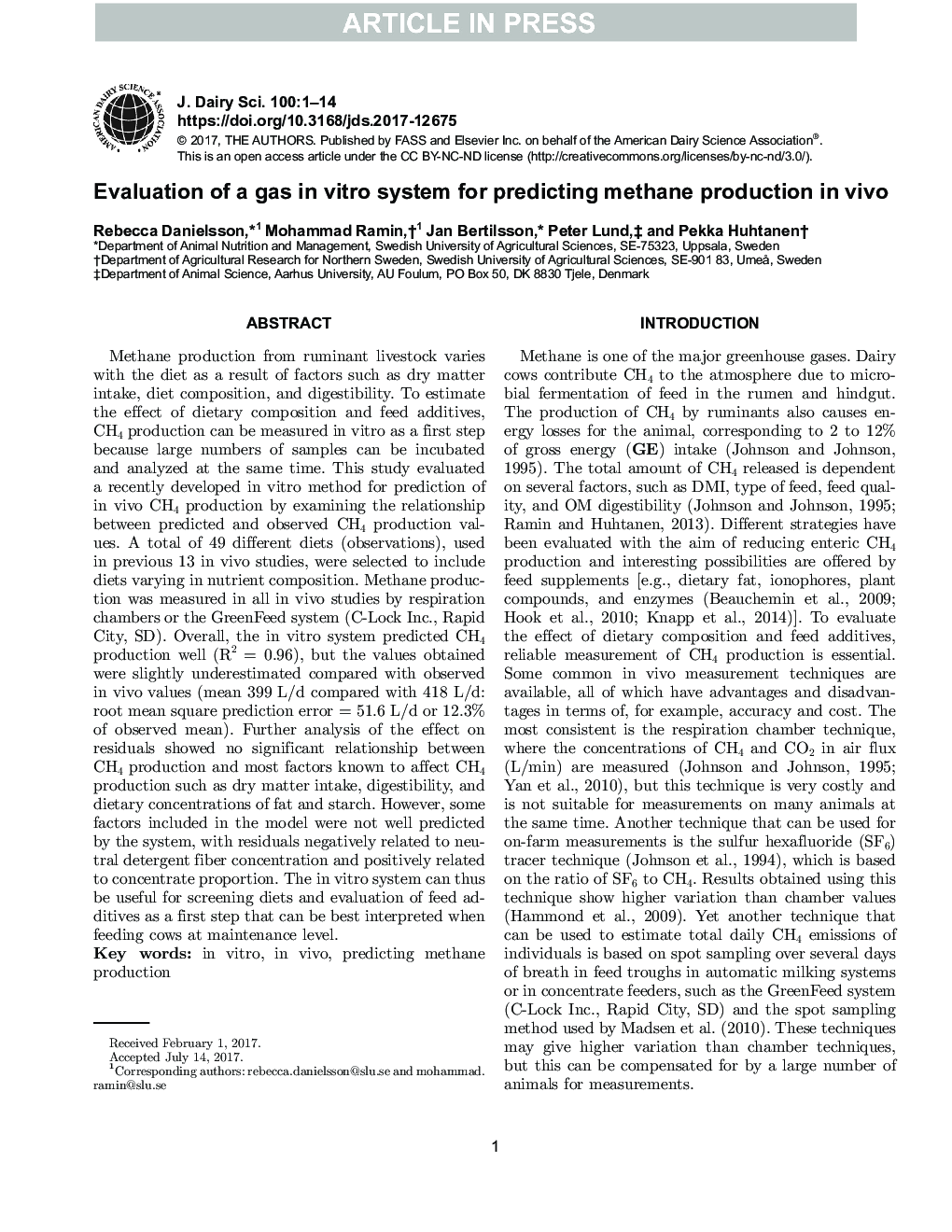| Article ID | Journal | Published Year | Pages | File Type |
|---|---|---|---|---|
| 5541660 | Journal of Dairy Science | 2017 | 14 Pages |
Abstract
Methane production from ruminant livestock varies with the diet as a result of factors such as dry matter intake, diet composition, and digestibility. To estimate the effect of dietary composition and feed additives, CH4 production can be measured in vitro as a first step because large numbers of samples can be incubated and analyzed at the same time. This study evaluated a recently developed in vitro method for prediction of in vivo CH4 production by examining the relationship between predicted and observed CH4 production values. A total of 49 different diets (observations), used in previous 13 in vivo studies, were selected to include diets varying in nutrient composition. Methane production was measured in all in vivo studies by respiration chambers or the GreenFeed system (C-Lock Inc., Rapid City, SD). Overall, the in vitro system predicted CH4 production well (R2 = 0.96), but the values obtained were slightly underestimated compared with observed in vivo values (mean 399 L/d compared with 418 L/d: root mean square prediction error = 51.6 L/d or 12.3% of observed mean). Further analysis of the effect on residuals showed no significant relationship between CH4 production and most factors known to affect CH4 production such as dry matter intake, digestibility, and dietary concentrations of fat and starch. However, some factors included in the model were not well predicted by the system, with residuals negatively related to neutral detergent fiber concentration and positively related to concentrate proportion. The in vitro system can thus be useful for screening diets and evaluation of feed additives as a first step that can be best interpreted when feeding cows at maintenance level.
Related Topics
Life Sciences
Agricultural and Biological Sciences
Animal Science and Zoology
Authors
Rebecca Danielsson, Mohammad Ramin, Jan Bertilsson, Peter Lund, Pekka Huhtanen,
